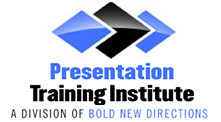Engage the Audience with Icebreakers
Icebreakers are a great way to interact with your audience and engage them in your presentation. These are typically easy questions that don’t require too much thought. Starting a presentation with a light-hearted question releases dopamine in the brain and encourages positive interaction. You can either ask your question with a show of hands or add to the excitement with a live polling feature. Some examples of simple icebreaker questions include:
- What is your favorite movie?*
- What is your ideal vacation?
- What superpower would you choose?
- Who would you most like to meet?
Ask Open-Ended Questions
Questioning to engage an audience is most effective when it involves open-ended questions. Open-ended questions prompt your audience to really think about their own personal beliefs and opinions, naturally increasing interest and engagement. They encourage audience members to think more deeply about the subject matter while also giving you better insight into their true feelings and attitudes about the topic.Â
Make Use of the 5 W’s
We are all familiar with the basic “5 W’s†of questioning: who, what, when , where, and why. These are considered the basics for information gathering so you can almost guarantee you will get useful information by asking these questions. In fact, they are so effective that they are often used by journalists and police during investigations. They are helpful for establishing a clear understanding of the topic so you can then move forward with more thought-provoking questions.Â
Provoke a Reaction
Rhetorical questions are often used by public speakers to make an impact and get the audience thinking. They are oftentimes provocative, which grabs the attention of the audience and engages them. They encourage people to think critically and challenge traditions, customs, habits, and ideologies. They can even foster empathy, understanding, or commitment to action.
